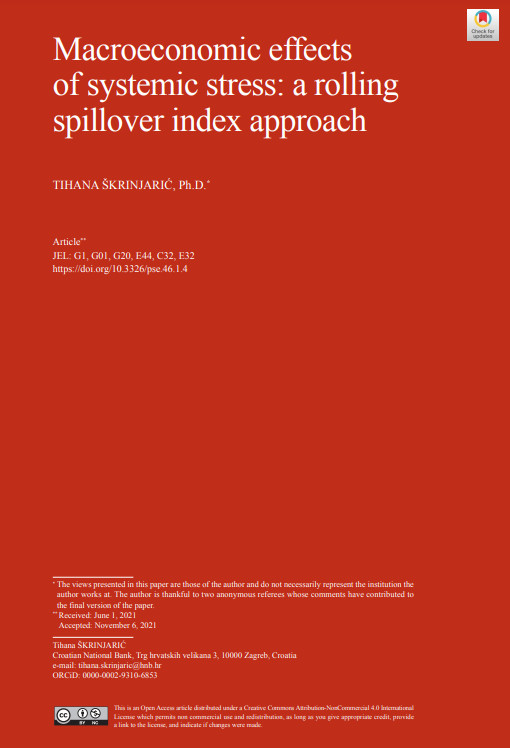Macroeconomic effects of systemic stress: a rolling spillover index approach
DOI:
https://doi.org/10.3326/pse.46.1.4Keywords:
systemic risk, systemic stress index, financial system, monetary policy, macroprudential measuresAbstract
This research belongs focuses on the effects of financial instability on the rest of the economy. The article observes the dynamic changes of the shock spillovers between systemic stress and the rest of the German economy. In that way, the net emitters and receivers of shocks are observed throughout time, as previous research found that systemic stress is not always the predictor of other economic activity. The analysis utilizes Diebold and Yilmaz (2009, 2012) spillover index approach within the vector autoregression model. One step further is taken as well, as the changes of dynamics are observed throughout the entire period. As the macroprudential and monetary policymakers have to track the interrelationships between these variables over time, the approach in the study is straightforward and easy to interpret. The timing and intensity of the specific measures are important in practice, and such an approach enables the policymakers to meet these criteria.

Downloads
Published
How to Cite
Issue
Section
License
Copyright (c) 2022 Tihana Škrinjarić

This work is licensed under a Creative Commons Attribution-NonCommercial 4.0 International License.








